Fabrizio De André: Monti di Mola
GLI EXTRA DELLE CCG / AWS EXTRAS / LES EXTRAS DES CCGLanguage: Italian (Gallurese)
In li Monti di Mola, la manzana
un'àina musteddina era pascendi.
In li Monti di Mola, la manzana
un cioano vantarricciu e moru era sfraschendi.
E l'occhji s'intuppésini cilchendi ea ea ea ea
e l'ea sguttési da li muccichili cù li bae ae ae...
E l'occhji la burricca aìa di lu mare,
e a iddu da li tivi escìa lu maestrale
E idda si tunchjà abbeddulata, ea ea ea ea
iddu le rispundìa linghitontu, ae ae ae ae...
"Oh bedda mea, l'àina luna
la bedda mea, capitali di lana
oh bedda mea, janca fultuna..."
"Oh beddu meu, l'occhji mi brusgi
lu beddu meu, carrasciali di basgi
lu beddu meu, lu core mi cusgi."
Amuri mannu, di prima olta
l'aba si suggi tuttu lu meli di chista multa.
Amori steddu, di tutti l'ori,
di petralana lu battadolu di chistu cori.
Ma nudda si pò fà, nudda, in Gaddura
che no lu ènini a sapi int'un'ura.
E nfattu una ecchja infrascunata fea, ea ea ea
piagnendi e figghjulendi si dicìa cù li bae, ae ae...
"Biata idda! Uai, che bedd'omu,
Biata idda! Cioanu e moru,
Biata idda! Sola mi moru.
Biata idda! Jà ma l'ammentu,
Biata idda! Più d'una olta,
Biata idda! Ezzaia tolta!"
Amuri mannu, di prima olta
l'aba si suggi tuttu lu meli di chista multa.
Amori steddu, di tutti l'ori,
di petralana lu battadolu di chistu cori.
E lu paesi intreu s'agghindési pa' lu coju,
lu pàrracu mattessi intrési in lu soju.
Ma a cujuassi no riscìsini l'àina e l'omu,
che da li documenti escìsini fratili in primu.
E idda si tunchjà abbeddulata, ea ea ea ea,
iddu le rispundìa linghitontu, ae ae ae ae...
un'àina musteddina era pascendi.
In li Monti di Mola, la manzana
un cioano vantarricciu e moru era sfraschendi.
E l'occhji s'intuppésini cilchendi ea ea ea ea
e l'ea sguttési da li muccichili cù li bae ae ae...
E l'occhji la burricca aìa di lu mare,
e a iddu da li tivi escìa lu maestrale
E idda si tunchjà abbeddulata, ea ea ea ea
iddu le rispundìa linghitontu, ae ae ae ae...
"Oh bedda mea, l'àina luna
la bedda mea, capitali di lana
oh bedda mea, janca fultuna..."
"Oh beddu meu, l'occhji mi brusgi
lu beddu meu, carrasciali di basgi
lu beddu meu, lu core mi cusgi."
Amuri mannu, di prima olta
l'aba si suggi tuttu lu meli di chista multa.
Amori steddu, di tutti l'ori,
di petralana lu battadolu di chistu cori.
Ma nudda si pò fà, nudda, in Gaddura
che no lu ènini a sapi int'un'ura.
E nfattu una ecchja infrascunata fea, ea ea ea
piagnendi e figghjulendi si dicìa cù li bae, ae ae...
"Biata idda! Uai, che bedd'omu,
Biata idda! Cioanu e moru,
Biata idda! Sola mi moru.
Biata idda! Jà ma l'ammentu,
Biata idda! Più d'una olta,
Biata idda! Ezzaia tolta!"
Amuri mannu, di prima olta
l'aba si suggi tuttu lu meli di chista multa.
Amori steddu, di tutti l'ori,
di petralana lu battadolu di chistu cori.
E lu paesi intreu s'agghindési pa' lu coju,
lu pàrracu mattessi intrési in lu soju.
Ma a cujuassi no riscìsini l'àina e l'omu,
che da li documenti escìsini fratili in primu.
E idda si tunchjà abbeddulata, ea ea ea ea,
iddu le rispundìa linghitontu, ae ae ae ae...
Contributed by adriana - 2011/5/11 - 18:10
Language: Italian
Versione italiana da Bielle
Nota. Si tratta della traduzione in italiano corrente presente nel libretto dell'album; è con tutta probabilità opera di Fabrizio De André stesso. [CCG/AWS Staff]
MONTI DI MOLA
Sui Monti di Mola, la mattina presto
un'asina dal mantello chiaro stava pascolando.
Sui Monti di Mola, la mattina presto
un giovane bruno e aitante stava tagliando rami.
E gli occhi si incontrarono mentre cercavano acqua
e l'acqua sgocciolò dai musi insieme alle bave.
E l'asina aveva gli occhi color del mare,
e a lui dalle narici usciva il Maestrale.
E lei ragliava incantata, ea ea ea ea,
lui le rispondeva pronunciando male, ae ae ae ae...
"Oh bella mia, l'asina luna
la bella mia, cuscino di lana,
o bella mia, bianca fortuna."
"O bello mio, mi bruci gli occhi,
il mio bello, carnevale di baci
oh bello mio, mi cuci il cuore."
Amore grande, di prima volta,
l'ape ci succhia tutto il miele di questo mirto,
amore bambino, di tutte le ore,
di muschio il battacchio di questo cuore.
Ma nulla si può fare, nulla, in Gallura
che non lo vengono a sapere in un'ora.
E sul posto una brutta vecchia nascosta tra le frasche
piangendo e guardando diceva fra sé con le bave alla bocca:
"Beata lei! Mamma mia che bell'uomo,
Beata lei! Giovane e bruno,
Beata lei, io muoio sola.
Beata lei, me lo ricordo bene,
Beata lei! Più d'una volta,
Beata lei! Vecchiaia storta."
Amore grande, di prima volta,
l'ape ci succhia tutto il miele di questo mirto,
amore bambino, di tutte le ore,
di muschio il battacchio di questo cuore.
Il paese intero si agghindò per il matrimonio,
lo stesso parroco entrò nel suo vestito.
Ma non riuscirono a sposarsi l'asina e l'uomo,
perché dai documenti risultarono cugini primi.
E lei ragliava incantata, ea ea ea ea,
lui le rispondeva pronunciando male, ae ae ae ae...
Sui Monti di Mola, la mattina presto
un'asina dal mantello chiaro stava pascolando.
Sui Monti di Mola, la mattina presto
un giovane bruno e aitante stava tagliando rami.
E gli occhi si incontrarono mentre cercavano acqua
e l'acqua sgocciolò dai musi insieme alle bave.
E l'asina aveva gli occhi color del mare,
e a lui dalle narici usciva il Maestrale.
E lei ragliava incantata, ea ea ea ea,
lui le rispondeva pronunciando male, ae ae ae ae...
"Oh bella mia, l'asina luna
la bella mia, cuscino di lana,
o bella mia, bianca fortuna."
"O bello mio, mi bruci gli occhi,
il mio bello, carnevale di baci
oh bello mio, mi cuci il cuore."
Amore grande, di prima volta,
l'ape ci succhia tutto il miele di questo mirto,
amore bambino, di tutte le ore,
di muschio il battacchio di questo cuore.
Ma nulla si può fare, nulla, in Gallura
che non lo vengono a sapere in un'ora.
E sul posto una brutta vecchia nascosta tra le frasche
piangendo e guardando diceva fra sé con le bave alla bocca:
"Beata lei! Mamma mia che bell'uomo,
Beata lei! Giovane e bruno,
Beata lei, io muoio sola.
Beata lei, me lo ricordo bene,
Beata lei! Più d'una volta,
Beata lei! Vecchiaia storta."
Amore grande, di prima volta,
l'ape ci succhia tutto il miele di questo mirto,
amore bambino, di tutte le ore,
di muschio il battacchio di questo cuore.
Il paese intero si agghindò per il matrimonio,
lo stesso parroco entrò nel suo vestito.
Ma non riuscirono a sposarsi l'asina e l'uomo,
perché dai documenti risultarono cugini primi.
E lei ragliava incantata, ea ea ea ea,
lui le rispondeva pronunciando male, ae ae ae ae...
Language: English
Versione inglese cantabile e commento di Simon Evnine, Professore Associato di Filosofia all'Università di Miami.
"This song, about the love between a young man and an ass whose attempt to marry one another is frustrated owing to their turning out to be consanguinous, is in a dialect of Sardinia, where de André lived for a number of years. "The Mountains of Mola" is, he notes, the ancient name for the costa smeralda (the Emerald Coast), a region of Sardinia. The translation is made from the Italian version of the text given in the liner notes of Le Nuvole (presumably made by de Andrè himself)."
THE MOUNTAINS OF MOLA
In the mountains of Mola, in the morning
A white-coated donkey was grazing in the meadow.
In the mountains of Mola, in the morning
cutting branches there was a dark-haired handsome fellow.
As they drank they looked into each other's eye, ea ea eae
The water dribbled down their chins as they let out a sigh, ea eae
The donkey's eyes were of the same color as the sea,
And the youth was swept by the Mistral when she breathed.
And enchanted she began to bray, ae ae ae aea
And haltingly he answered though he found it hard to say, ea eae
"Oh lovely girl moon of a donkey,
Oh lovely girl, wool-covered cushion
Oh lovely girl, milk-white good fortune."
"Oh lovely boy, you make my eyes sting
Oh lovely boy, orgy of kisses,
Oh lovely boy, you sew up my heart strings."
The greatest love, the very first
The bee sucks honey, from this flower to slake its thirst.
Puppy love, eternal Spring,
The velvet moss, the clapper that makes this heart ring.
But nothing can be kept a secret in Gallura,
Everything becomes common knowledge in an hour.
And hidden lurked an ugly crone who liked to spy, ea ea eae
Who, drooling as shewatched, began to cry ea ea ea eae
"Oh happy she! Lord he's so handsome
Oh happy she! Dark-haired and youthful
Oh happy she! I'll die on my lonesome.
Oh happy she! I remember so clearly
Oh happy she! And not one time only
Oh happy she! Twisted and lonely."
The greatest love, the very first
The bee sucks honey, from this flower to slake its thirst.
Puppy love, eternal Spring,
The velvet moss, the clapper that makes this heart ring.
Everyone dressed up in their finest for the wedding feast,
And in his sacramental vestments, came the priest.
But the man and donkey's wedding, it was frustrated
Because the parish records revealed that they were related.
And enchanted she began to bray, ae ae ae aea
and haltingly he answered though he found it hard to say ea eae
In the mountains of Mola, in the morning
A white-coated donkey was grazing in the meadow.
In the mountains of Mola, in the morning
cutting branches there was a dark-haired handsome fellow.
As they drank they looked into each other's eye, ea ea eae
The water dribbled down their chins as they let out a sigh, ea eae
The donkey's eyes were of the same color as the sea,
And the youth was swept by the Mistral when she breathed.
And enchanted she began to bray, ae ae ae aea
And haltingly he answered though he found it hard to say, ea eae
"Oh lovely girl moon of a donkey,
Oh lovely girl, wool-covered cushion
Oh lovely girl, milk-white good fortune."
"Oh lovely boy, you make my eyes sting
Oh lovely boy, orgy of kisses,
Oh lovely boy, you sew up my heart strings."
The greatest love, the very first
The bee sucks honey, from this flower to slake its thirst.
Puppy love, eternal Spring,
The velvet moss, the clapper that makes this heart ring.
But nothing can be kept a secret in Gallura,
Everything becomes common knowledge in an hour.
And hidden lurked an ugly crone who liked to spy, ea ea eae
Who, drooling as shewatched, began to cry ea ea ea eae
"Oh happy she! Lord he's so handsome
Oh happy she! Dark-haired and youthful
Oh happy she! I'll die on my lonesome.
Oh happy she! I remember so clearly
Oh happy she! And not one time only
Oh happy she! Twisted and lonely."
The greatest love, the very first
The bee sucks honey, from this flower to slake its thirst.
Puppy love, eternal Spring,
The velvet moss, the clapper that makes this heart ring.
Everyone dressed up in their finest for the wedding feast,
And in his sacramental vestments, came the priest.
But the man and donkey's wedding, it was frustrated
Because the parish records revealed that they were related.
And enchanted she began to bray, ae ae ae aea
and haltingly he answered though he found it hard to say ea eae
Contributed by Maria Cristina Costantini - 2012/7/24 - 13:14
Language: English
La versione inglese di Dennis Criteser [2014]
Dal blog Fabrizio De André in English
Dal blog Fabrizio De André in English
"Monti di Mola" takes place on the Emerald Coast of Sardinia. De André called the song a metaphor showing the impossibility of reaching one's dreams in a society that has become bureaucratic and standardized, where the imagination of the culture can't expand to accept "impossible dreams" that are on the verge of coming true. The song is in the Gallurese dialect.
It took six years after the tremendous success of Creuza de mä for De André to release his next studio album, Le nuvole (The Clouds). In the meantime, he and Mauro Pagani explored several avenues of musical collaboration which did not come to fruition. De André had this to say about Le nuvole: "I realized that people are just pissed off, and since Le nuvole is a symbol of this dissatisfaction, the transference, the intermediary for this general discontent, I would say that the album was welcomed almost as a banner, like an emblem of the anger in the face of a nation that is going to the dogs, and certainly not through any fault of the citizens." Additionally, Mauro Pagani said the album was a fantastic description of Italy in the 1980s, with parallels to Europe in the early 1800s: "Italy in the early 1980s was like Europe in 1815: the Congress of Vienna, the fall of the Napoleonic empire, the sharing of the goods among the winning powers, social classes built on wealth instead of aristocracy, a society of fake Christianity . . ." The title of and inspiration for the album came from the comedy of the same name by Aristophanes, whom De André greatly admired." - Dennis Criteser
It took six years after the tremendous success of Creuza de mä for De André to release his next studio album, Le nuvole (The Clouds). In the meantime, he and Mauro Pagani explored several avenues of musical collaboration which did not come to fruition. De André had this to say about Le nuvole: "I realized that people are just pissed off, and since Le nuvole is a symbol of this dissatisfaction, the transference, the intermediary for this general discontent, I would say that the album was welcomed almost as a banner, like an emblem of the anger in the face of a nation that is going to the dogs, and certainly not through any fault of the citizens." Additionally, Mauro Pagani said the album was a fantastic description of Italy in the 1980s, with parallels to Europe in the early 1800s: "Italy in the early 1980s was like Europe in 1815: the Congress of Vienna, the fall of the Napoleonic empire, the sharing of the goods among the winning powers, social classes built on wealth instead of aristocracy, a society of fake Christianity . . ." The title of and inspiration for the album came from the comedy of the same name by Aristophanes, whom De André greatly admired." - Dennis Criteser
MOUNTAINS OF MOLA
In the Mountains of Mola, early morning,
a donkey mare, white of coat, was pasturing.
In the Mountains of Mola, early morning,
a sturdy young dark-haired man was cutting branches.
And their eyes met searching for water water water water,
and water dripped from their snouts along with the drool ool ool.
And the donkey mare, she had eyes the color of the sea,
and to him from her nostrils issued the Northwest Wind
and she brayed, enchanted, ea ea ea ea.
He replied to her, mispronouncing, ae ae ae ae.
“Oh my beautiful one, moon donkey,
my beautiful one, cushion of wool,
oh my beautiful one, white fortune.”
“Oh my handsome one, you make my eyes sting,
oh my handsome one, carnival of kisses,
oh my handsome one, you sew up my heart.”
Deep love for the first time,
the bee sucks all the honey from this myrtle.
Young love of all the hours,
of moss is the clapper of this heart.
But no one can do anything in Gallura
that doesn’t come to be known in an hour,
and on the scene an ugly old woman hidden in the branches,
crying and watching,says to herself, foaming at the mouth:
“Lucky her, mamma mia, what a handsome man.
Lucky her, young and dark-haired.
Lucky her, I die alone.
"Lucky her, I remember it well.
Lucky her, more than one time.
Lucky her, twisted old age.”
Deep love for the first time,
the bee sucks all the honey from this myrtle.
Young love of all the hours,
of moss is the clapper of this heart.
The entire countryside got decked out for the wedding,
the same parish priest entered in his vestments.
But they didn’t manage to marry, the donkey and the man,
for in the documents they turned out to be first cousins.
And she brayed, enchanted, ea ea ea ea.
He responded to her, mispronouncing, ae ae ae ae.
In the Mountains of Mola, early morning,
a donkey mare, white of coat, was pasturing.
In the Mountains of Mola, early morning,
a sturdy young dark-haired man was cutting branches.
And their eyes met searching for water water water water,
and water dripped from their snouts along with the drool ool ool.
And the donkey mare, she had eyes the color of the sea,
and to him from her nostrils issued the Northwest Wind
and she brayed, enchanted, ea ea ea ea.
He replied to her, mispronouncing, ae ae ae ae.
“Oh my beautiful one, moon donkey,
my beautiful one, cushion of wool,
oh my beautiful one, white fortune.”
“Oh my handsome one, you make my eyes sting,
oh my handsome one, carnival of kisses,
oh my handsome one, you sew up my heart.”
Deep love for the first time,
the bee sucks all the honey from this myrtle.
Young love of all the hours,
of moss is the clapper of this heart.
But no one can do anything in Gallura
that doesn’t come to be known in an hour,
and on the scene an ugly old woman hidden in the branches,
crying and watching,says to herself, foaming at the mouth:
“Lucky her, mamma mia, what a handsome man.
Lucky her, young and dark-haired.
Lucky her, I die alone.
"Lucky her, I remember it well.
Lucky her, more than one time.
Lucky her, twisted old age.”
Deep love for the first time,
the bee sucks all the honey from this myrtle.
Young love of all the hours,
of moss is the clapper of this heart.
The entire countryside got decked out for the wedding,
the same parish priest entered in his vestments.
But they didn’t manage to marry, the donkey and the man,
for in the documents they turned out to be first cousins.
And she brayed, enchanted, ea ea ea ea.
He responded to her, mispronouncing, ae ae ae ae.
Contributed by Riccardo Venturi - 2016/2/10 - 09:55
Language: French
Version française – MONT DE MOLA – Marco Valdo M.I. – 2011
d'après la version italienne MONTI DI MOLA (Bielle)
d'une chanson en sarde – gallurais « Monti di Mola » de Fabrizio De André (1990)
Monti di Mola : c'est le nom donné anciennement à ce qui s'appelle aujourd'hui en Sardaigne : « Costa Smeralda ».
d'après la version italienne MONTI DI MOLA (Bielle)
d'une chanson en sarde – gallurais « Monti di Mola » de Fabrizio De André (1990)
Monti di Mola : c'est le nom donné anciennement à ce qui s'appelle aujourd'hui en Sardaigne : « Costa Smeralda ».
Oh, Marco Valdo M.I., ne crois-tu pas que nos amis des CCG avaient dans l'idée de se moquer un peu de nous... ?
Cela se pourrait, Lucien l'âne mon ami, et comme toi, je les soupçonne de nous faire une petite blague avec ce mariage manqué... Mais même si de nos jours, les êtres d'un même sexe peuvent se marier les uns avec les autres – du moins dans nos pays par ici... Même si je n'ai strictement rien contre de telles amours, nous, je veux dire toi et moi, ne sommes ni frère, ni sœur... Et même si Tonton Georges chante : « avoir un bon copain, c'est la meilleure chose au monde, oui car un bon copain, c'est bien meilleur qu'une blonde... », nous en restons à nos relations amicales... D'ailleurs, la chose serait sans aucun doute à envisager d'une autre manière si au lieu de te prénommer Lucien et d'en avoir les attributs, je veux dire de grandes oreilles... Je penserais à toi différemment, si (pour en revenir à Tonton Georges) tu te prénommais Fernande ou Félicie, ou Léonore, mais vois-tu, tu te prénommes Lulu...
Certes, Marco Valdo M.I. mon ami, mais qu'importe, puisque en tout état de cause, ce serait pareil pour moi, même si tu ne te prénommes pas Lulu... Et n'étant ni blonde, ni ânesse, je garde avec émotion au sein de mon cœur, certaine jeune pucelle grecque qui m'ensorcela et se trompa, malheureusement, d'onguent... Ce qui me fit, je te le rappelle, âne depuis des millénaires. Je cherche toujours les roses qui me permettront de recouvrer mon apparence humaine et de goûter à nouveau à son miel... Car, vois-tu, elle me refuse certaine ivresse tant que je garderai mon grand corps doux. En attendant, je tisse le linceul de ce vieux monde misogyne, coincé, retardataire et cacochyme... dont la disparition est sans aucun doute la rose que je poursuis depuis tant de temps...
Ainsi Parlaient Marco Valdo M.I. et Lucien Lane.
Cela se pourrait, Lucien l'âne mon ami, et comme toi, je les soupçonne de nous faire une petite blague avec ce mariage manqué... Mais même si de nos jours, les êtres d'un même sexe peuvent se marier les uns avec les autres – du moins dans nos pays par ici... Même si je n'ai strictement rien contre de telles amours, nous, je veux dire toi et moi, ne sommes ni frère, ni sœur... Et même si Tonton Georges chante : « avoir un bon copain, c'est la meilleure chose au monde, oui car un bon copain, c'est bien meilleur qu'une blonde... », nous en restons à nos relations amicales... D'ailleurs, la chose serait sans aucun doute à envisager d'une autre manière si au lieu de te prénommer Lucien et d'en avoir les attributs, je veux dire de grandes oreilles... Je penserais à toi différemment, si (pour en revenir à Tonton Georges) tu te prénommais Fernande ou Félicie, ou Léonore, mais vois-tu, tu te prénommes Lulu...
Certes, Marco Valdo M.I. mon ami, mais qu'importe, puisque en tout état de cause, ce serait pareil pour moi, même si tu ne te prénommes pas Lulu... Et n'étant ni blonde, ni ânesse, je garde avec émotion au sein de mon cœur, certaine jeune pucelle grecque qui m'ensorcela et se trompa, malheureusement, d'onguent... Ce qui me fit, je te le rappelle, âne depuis des millénaires. Je cherche toujours les roses qui me permettront de recouvrer mon apparence humaine et de goûter à nouveau à son miel... Car, vois-tu, elle me refuse certaine ivresse tant que je garderai mon grand corps doux. En attendant, je tisse le linceul de ce vieux monde misogyne, coincé, retardataire et cacochyme... dont la disparition est sans aucun doute la rose que je poursuis depuis tant de temps...
Ainsi Parlaient Marco Valdo M.I. et Lucien Lane.
MONTS DE MOLA
Sur les Monts de Mola, un beau matin,
Une ânesse au manteau clair paissait.
Sur les Monts de Mola, un beau matin
Un jeune bellâtre brunet débroussaillait.
Quand leurs yeux se rencontrèrent alors qu'ils buvaient
Mêlée à la bave, l'eau gouttait de leurs museaux.
L'ânesse avait les yeux couleur de l'eau,
Et lui, le Mistral lui sortait des naseaux
Enchantée, elle brayait hihan, hihan, hihan
Il répondait en prononçant mal hinan, hinan, hinan...
"Ô ma belle, mon ânesse-lune
Ma belle, mon coussin duveteux
Ô ma belle, blanche fortune."
"Ô mon beau, tu me brûles les yeux
Mon beau, cortège de baisers
Ô mon beau, tu me couds le cœur."
Mon grand amour, mon premier
L'abeille suce le miel de cette liqueur
Amour enfant de toutes les heures
Battant de mousse de ce cœur.
Mais en Gallure, rien de rien ne se peut faire
Que l'on ne vienne à savoir dans l'heure
Et là, sur place, une vieille cachée dans les sous-bois
Pleurant et regardant, la bave à la bouche, disait à part soi :
"Bienheureuse! Maman, quel bel homme
Bienheureuse! Brun et bien jeune
Bienheureuse! Moi, je meurs seule.
Bienheureuse! Je m'en rappelle
Bienheureuse! Plus d'une fois
Bienheureuse! Vieillesse de guingois..."
Mon grand amour, mon premier
L'abeille suce le miel de cette liqueur
Amour enfant de toutes les heures
Battant de mousse de ce cœur.
Le pays entier s'habille pour les épousailles
Même le prêtre enfile sa chasuble.
Mais on n'arrive pas à marier, l'ânesse et l'homme
Car il résulte des papiers qu'ils sont frère et sœur en somme.
Désespérée, elle brayait hihan, hihan, hihan
Et il répondait en prononçant mal hinan, hinan, hinan.
Sur les Monts de Mola, un beau matin,
Une ânesse au manteau clair paissait.
Sur les Monts de Mola, un beau matin
Un jeune bellâtre brunet débroussaillait.
Quand leurs yeux se rencontrèrent alors qu'ils buvaient
Mêlée à la bave, l'eau gouttait de leurs museaux.
L'ânesse avait les yeux couleur de l'eau,
Et lui, le Mistral lui sortait des naseaux
Enchantée, elle brayait hihan, hihan, hihan
Il répondait en prononçant mal hinan, hinan, hinan...
"Ô ma belle, mon ânesse-lune
Ma belle, mon coussin duveteux
Ô ma belle, blanche fortune."
"Ô mon beau, tu me brûles les yeux
Mon beau, cortège de baisers
Ô mon beau, tu me couds le cœur."
Mon grand amour, mon premier
L'abeille suce le miel de cette liqueur
Amour enfant de toutes les heures
Battant de mousse de ce cœur.
Mais en Gallure, rien de rien ne se peut faire
Que l'on ne vienne à savoir dans l'heure
Et là, sur place, une vieille cachée dans les sous-bois
Pleurant et regardant, la bave à la bouche, disait à part soi :
"Bienheureuse! Maman, quel bel homme
Bienheureuse! Brun et bien jeune
Bienheureuse! Moi, je meurs seule.
Bienheureuse! Je m'en rappelle
Bienheureuse! Plus d'une fois
Bienheureuse! Vieillesse de guingois..."
Mon grand amour, mon premier
L'abeille suce le miel de cette liqueur
Amour enfant de toutes les heures
Battant de mousse de ce cœur.
Le pays entier s'habille pour les épousailles
Même le prêtre enfile sa chasuble.
Mais on n'arrive pas à marier, l'ânesse et l'homme
Car il résulte des papiers qu'ils sont frère et sœur en somme.
Désespérée, elle brayait hihan, hihan, hihan
Et il répondait en prononçant mal hinan, hinan, hinan.
Contributed by Marco Valdo M.I. - 2011/5/13 - 14:13
Commentaire complémentaire :
Oui, Tonton Georges a bien chanté « Avoir un bon copain » et si on veut vraiment en être sûr, il suffit de l'écouter chanter ceci et voici le texte intégral de la chanson en question :
Georges Brassens
AVOIR UN BON COPAIN
Paroles: Jean Boyer, musique: W. Heymann, 1931
Avoir un bon copain
Voilà ce qu'il y a de meilleur au monde
Oui, car, un bon copain
C'est plus fidèle qu'une blonde
Unis main dans la main
A chaque seconde
On rit de ses chagrins
Quand on possède un bon copain
C'est le printemps
On a vingt ans
Le cœur et le moteur
Battent gaiement
Droit devant nous
Sans savoir où
Nous filons comme des fous
Car aujourd'hui
Tout nous sourit
Dans une auto
On est bien entre amis
Aussi chantons
Sur tous les tons
Le bonheur d'être garçon!
Avoir un bon copain
Voilà ce qu'il y a de meilleur au monde
Oui, car, un bon copain
C'est plus fidèle qu'une blonde
Unis main dans la main
A chaque seconde
On rit de ses chagrins
Quand on possède un bon copain.
Oui, Tonton Georges a bien chanté « Avoir un bon copain » et si on veut vraiment en être sûr, il suffit de l'écouter chanter ceci et voici le texte intégral de la chanson en question :
Georges Brassens
AVOIR UN BON COPAIN
Paroles: Jean Boyer, musique: W. Heymann, 1931
Avoir un bon copain
Voilà ce qu'il y a de meilleur au monde
Oui, car, un bon copain
C'est plus fidèle qu'une blonde
Unis main dans la main
A chaque seconde
On rit de ses chagrins
Quand on possède un bon copain
C'est le printemps
On a vingt ans
Le cœur et le moteur
Battent gaiement
Droit devant nous
Sans savoir où
Nous filons comme des fous
Car aujourd'hui
Tout nous sourit
Dans une auto
On est bien entre amis
Aussi chantons
Sur tous les tons
Le bonheur d'être garçon!
Avoir un bon copain
Voilà ce qu'il y a de meilleur au monde
Oui, car, un bon copain
C'est plus fidèle qu'une blonde
Unis main dans la main
A chaque seconde
On rit de ses chagrins
Quand on possède un bon copain.
Marco Valdo M.I. - 2011/5/13 - 15:26
la foto non è attinente. I monti di mola sono nella zona costiera della Gallura, Costa Smeralda.
giovanni - 2019/2/25 - 17:18
Hai letto l'introduzione alla canzone, Giovanni? L'inserimento della foto che vi è presente è, mettiamola così, "metaforica". Sappiamo bene dove si trovano i "Monti di Mola", e crediamo che, all'infuori dell'ambito locale, tale antica denominazione sia stata diffusa proprio dalla canzone in gallurese di De André. Ad ogni modo, avremmo messo volentieri nella pagina un'immagine dei Monti di Mola prima che diventassero "Costa Smeralda"; ma le uniche immagini che si trovano sono dell'attuale Porto Cervo e dintorni. Ce ne potresti per cortesia segnalare una? Ripetiamo, la metteremmo senz'altro. Saluti e grazie!
CCG/AWS Staff - 2019/2/25 - 21:09
×
![]()
Note for non-Italian users: Sorry, though the interface of this website is translated into English, most commentaries and biographies are in Italian and/or in other languages like French, German, Spanish, Russian etc.

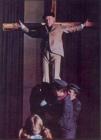

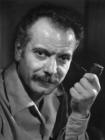
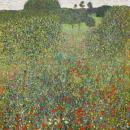
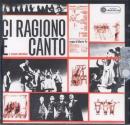
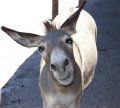
Testo e musica di Fabrizio De André e Mauro Pagani
Ai cori: Tazenda
Album : Le nuvole